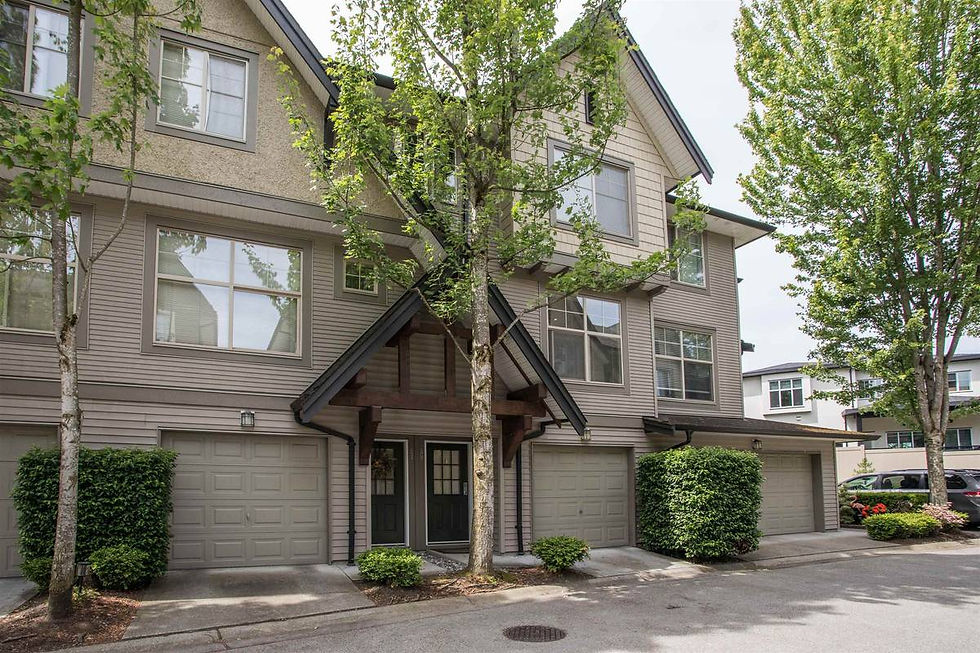How to Successfully Sell Your Home in Canada: A Homeowner’s Guide
- priscillaking951
- Aug 1, 2025
- 4 min read
Selling a home in Canada begins with knowing how the real estate market operates. Across the country, property values, buyer demand, and selling trends vary widely depending on location, season, and economic conditions. In larger cities like Toronto and Vancouver, the market can be highly competitive, while in smaller towns or rural regions, sales may take more time. It's important to monitor the local housing market—looking at similar homes that have recently sold—to set realistic expectations about your timeline and pricing.

Canada's market is also influenced by factors such as interest rates, immigration trends, and government policies like the First-Time Home Buyer Incentive or foreign buyer regulations. As a seller, keeping up with these updates will help you make informed decisions and anticipate what buyers might be looking for. A smart seller understands both the macroeconomic factors and the hyperlocal nuances of the area they’re selling in.
Preparing Your Home for a Competitive Sale
To attract the right buyers, your home needs to stand out. That starts with presentation. Decluttering the space, cleaning thoroughly, and making minor repairs can go a long way in making a home feel fresh and welcoming. In competitive areas of Canada, staging your home—using neutral furniture and minimal décor—can help buyers visualize themselves living there. A good first impression creates emotional interest, which often translates to better offers.
Curb appeal also matters, especially during the spring and summer selling seasons. Maintaining the front lawn, repainting the door, or updating exterior lighting can improve the home's perceived value. Inside, neutral tones, natural lighting, and well-maintained appliances give buyers confidence. If you’re serious about getting the best price for your home, these details shouldn’t be overlooked. A well-prepared home in Canada’s real estate market often sells faster and at a higher price.
Setting the Right Price for the Market
One of the most critical aspects of selling your home in Canada is choosing the correct listing price. Price it too high, and your home might sit on the market for weeks or even months. Too low, and you risk leaving money on the table. A good strategy involves analyzing comparable sales in your neighborhood—properties that are similar in size, features, and location. Realtors often use a Comparative Market Analysis (CMA) to guide sellers in determining an optimal price point.
In Canada's dynamic market, pricing also depends on timing. For example, selling during spring or early summer usually brings more buyer activity, which can support stronger pricing. Conversely, in winter or during high-interest periods, you may need to be more flexible. Adjusting your price in response to buyer feedback or market changes can keep your listing competitive. The goal is to balance attracting attention while still protecting your property’s value.
Working with a Real Estate Agent in Canada
While it's possible to sell your home independently, most Canadian homeowners choose to work with a licensed real estate agent. A skilled agent brings market knowledge, negotiation skills, and industry connections to the table. They can help you create a strong listing, schedule showings, and market your property through the right channels, including MLS (Multiple Listing Service), which reaches a wide audience of potential buyers.
Agents also handle inquiries, coordinate open houses, and manage offers, which reduces stress during what can be an emotional process. Choosing the right realtor means finding someone who understands your neighborhood, communicates well, and aligns with your goals. In Canada, agent commissions are usually paid upon the successful sale of your home, so their incentives are aligned with yours. A trustworthy agent can make a major difference in the final sale outcome.
Navigating Offers, Negotiations, and Closing
Once your home is listed and showings begin, the next phase is reviewing offers. In Canada, many buyers submit offers with conditions, such as financing or a home inspection. As a seller, you have the option to accept, reject, or counter any offer that comes in. If multiple buyers are interested, you may even find yourself in a bidding war, which can drive the sale price higher than expected.
After you accept an offer, the legal and financial processes begin. Your lawyer will help you complete the necessary paperwork and ensure all disclosures are accurate. The buyer’s financing, inspections, and title search must all be completed before closing. In provinces like Ontario or British Columbia, the closing process usually takes between 30 and 90 days, depending on the agreement. By staying organized and maintaining good communication with your agent and lawyer, you can ensure a smooth closing and a successful sale.
Conclusion: Selling with Confidence in the Canadian Market
Selling your home in Canada is a significant life decision that involves planning, preparation, and the right support. By understanding the local market, enhancing your home's appeal, pricing it strategically, and working with a qualified real estate agent, you can navigate the process smoothly and maximize your return. Every home is unique, and so is every sale—your experience should be tailored to your goals and circumstances.
Whether you're upgrading to a larger space, relocating for work, or simply exploring new possibilities, selling your home is not just about the transaction—it’s about moving forward with confidence. When you approach it the right way, selling your home in Canada can be not just profitable, but also empowering.









Comments